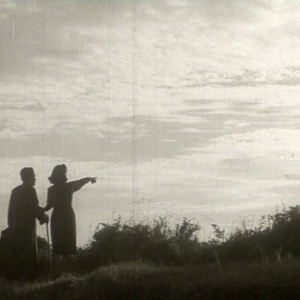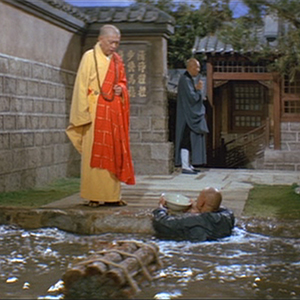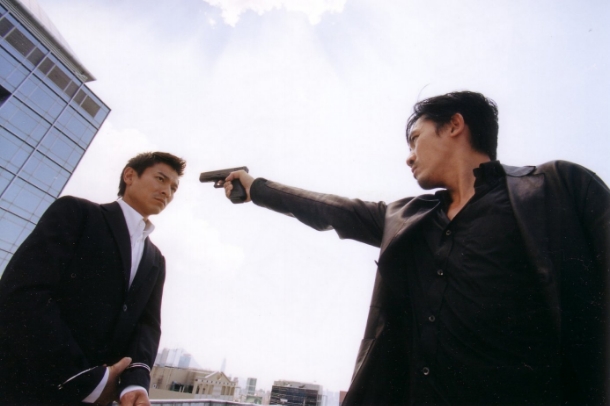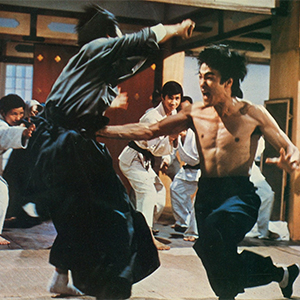Jacques Demy’s The Umbrellas of Cherbourg was his first colour film and musical, and marked a pivotal development in his filmmaking, in externalising his personal vision through the choreography of story, song, space, and cast. It was his third feature, following the superb black-and-white seaside missed romances Lola (1961) and Bay of Angels (1963). But The Umbrellas of Cherbourg differs from these two films only in a developmental sense because it continues their narrative ideas and situations. Abandonment, missed encounter, chance, resignation, and fate often shape the romances and relationships in Demy’s films. Lola and Bay of Angels present a mixture of potential lovers (gambling being one of them in the latter film) that never ends up coming to fruition, set in the port towns of Nantes and Nice, respectively. With The Umbrellas of Cherbourg, Demy presents perhaps the most concentrated and intense look at one couple, their love, their circumstances, and how their lives evolve together and separately and involve other lovers, set in the port town of Cherbourg. It is his most concentrated and intense conception of the above-mentioned factors—and the way the port town setting further magnifies such themes of transitoriness in love and life—by virtue of its boldfaced musicality and colourisation. Through Demy in this film of young love, impulses/desires, pressures, and class difference, the musical as a visual and aural style (as opposed to a genre) has never been fleshed out with such a profound understanding for the way it accentuates and multiplies melodrama and distends narrative time.










